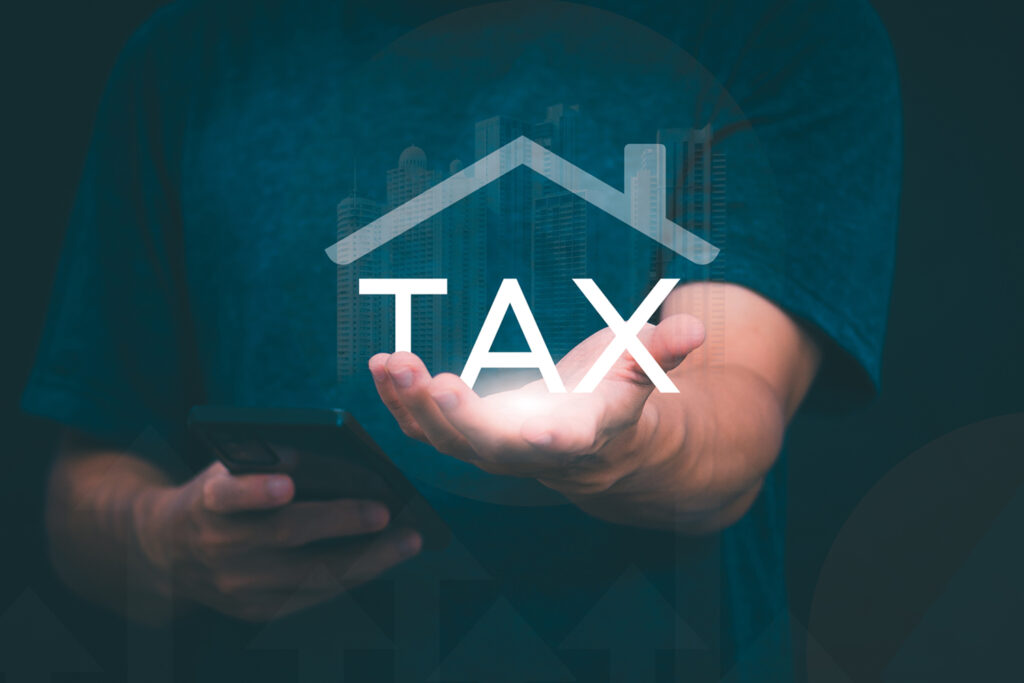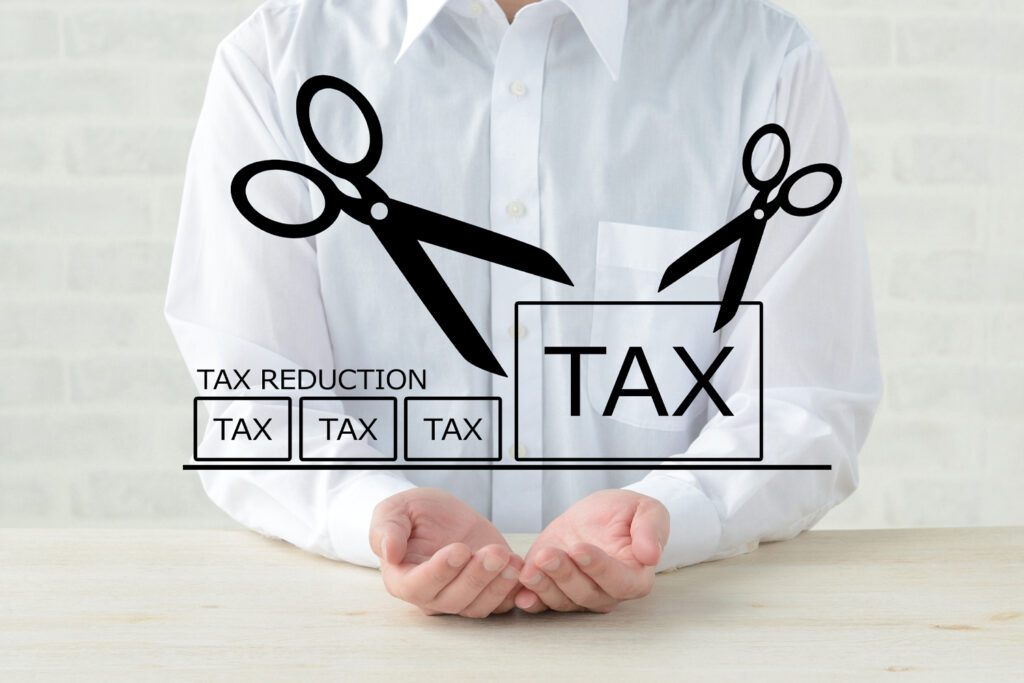
When buying property in Japan, understanding the tax system is essential for making smart decisions. Japan’s property taxes work differently from many other countries, with multiple layers of taxes and other costs that apply at different stages of ownership. This comprehensive guide breaks down everything you need to know about property taxes in Tokyo and throughout Japan.
Property Purchase Costs in Japan
Annual Property Ownership Costs and Taxes in Japan
Special Tax Reductions and Exemptions in Japan
Capital Gains Tax When Selling in Japan
The Japanese Property Tax System: An Overview
Japan’s property tax framework consists of several distinct taxes that apply when you buy, own, and sell property.
The main taxes you’ll encounter are:
- Real estate acquisition tax (不動産取得税) when purchasing,
- Registration and license tax (登録免許税) when registering property ownership, and
- Stamp duty (印紙税) on certain legal documents related to the property.
- Annual fixed asset tax (固定資産税) and city planning tax (都市計画税) while holding the property,
- Capital gains tax when selling,
Many tax reductions and exemptions are available, but these typically apply only under certain specific conditions. These conditions vary depending on the type of property, its use, size, and your residency status. Working with experienced professionals ensures you don’t miss opportunities for savings.
Property Purchase Costs in Japan
When purchasing property in Japan, initial costs typically run around 5% +/- of the property price. This includes several different fees and taxes that complete the transaction and transfer ownership legally.
*If you use financing, bank fees will be added based on the loan amount
Real Estate Acquisition Tax (不動産取得税 – Fudōsan Shutoku-zei)
When you purchase property in Japan, you’ll pay a real estate acquisition tax. This one-time tax is charged after the purchase completion and varies based on the property’s assessed value, not the purchase price. It is paid to the prefectural government when you acquire real estate and applies to ownership acquisition, not annual ownership.
Taxable Transactions include purchase, new construction, renovation or extension, gift, exchange. Inheritance is exempt from this tax.
For residential properties and land, the current rate is 3% until March 31st, 2027, due to current government incentives. Non-residential properties face a 4% rate.
Payment for this tax is made about 3 to 6 months after acquisition, when a tax notice will be sent by the prefectural government and payment is made at a bank or a designated financial institution.
Registration and License Tax (登録免許税 – Tōki Menkyo-zei) and Judicial Scrivener Fee
Property registration and license require paying registration tax to officially transfer ownership. This process also involves hiring a judicial scrivener (司法書士) who handles the legal paperwork and ensures proper registration with local authorities.
The registration tax varies by property type and has current reduced rates until March 31st, 2027, for properties and March 31st 2026, for land. For land purchases, the standard rate is 2% (reduced to 1.5% during the current incentive period). For buildings, the rate is 2% (reduced to 0.1% – 0.3% depending on the residential property until March 31st, 2027). These reductions make property purchases more attractive during this period. Judicial scrivener fees typically add several hundred thousand yen to your purchase costs. These professionals ensure all documentation meets Japanese legal requirements and handle the complex registration process.
Stamp Duty (印紙税)
Japan’s stamp duty applies to the sales contract and varies based on the property price. The current reduced rates are valid until March 31, 2027, making property purchases more attractive during this period.
Current Stamp Duty Rates (*Reduced rates valid until March 31, 2027):
| property Contract Cost | Tax Rate | Reduced Tax Rate * |
|---|---|---|
| Between ¥100,000 and ¥500,000 | ¥ 400 | ¥ 200 |
| Between ¥500,000 and ¥1,000,000 | ¥ 1,000 | ¥ 500 |
| Between ¥1,000,000 and ¥5,000,000 | ¥ 2,000 | ¥ 1,000 |
| Between ¥5,000,000 and ¥10,000,000 | ¥ 10,000 | ¥ 5,000 |
| Between ¥10,000,000 and ¥50,000,000 | ¥ 20,000 | ¥ 10,000 |
| Between ¥50,000,000 and ¥100,000,000 | ¥ 60,000 | ¥ 30,000 |
| Between ¥100,000,000 and ¥500,000,000 | ¥ 100,000 | ¥ 60,000 |
| Between ¥500,000,000 and ¥1,000,000,000 | ¥ 200,000 | ¥ 160,000 |
| Between ¥1,000,000,000 and ¥5,000,000,000 | ¥ 400,000 | ¥ 320,000 |
| More than ¥5,000,000,000 | ¥ 600,000 | ¥ 480,000 |
Source: Japan National Tax Agency (JP only)
Agent Fees and Mortgage Costs in Japan
Real estate agent fees are regulated in Japan and set at 3% of the purchase price plus 60,000 yen, plus consumption tax. This fee structure provides transparency compared to some international markets where fees can vary widely.
If you’re using a mortgage to finance your purchase, expect to add a minimum of 2.2%, including tax, for the handling fee.
It’s important to note that consumption tax (10%) applies to most professional services, including agent fees, judicial scrivener fees, and other service-related costs. This tax is typically included in quoted prices but should be confirmed when budgeting for your purchase.
Purchase Cost Example: Property with a ¥524,000,000 Sale Price
Let’s examine the total purchase costs for a luxury property with a sale price of ¥524,000,000 that was sold by Housing Japan with payment done in cash.
| Property summary | |||
| Property type | House | ||
| Land Size | 131.06 sq.m. | Land Appraisal value | ¥124,126,920 |
| Building Size | 167.03 sq.m. | Building Appraisal value | ¥9,502,800 |
| Expenses | |
| Sales price | ¥524,000,000 |
| Miscellaneous costs | ¥22,032,388 4.20% of the sales price. |
| Total | ¥546,032,388 |
| Breakdown of expenses Closing middle of Sep, 2025 | |||
| Contract signing | Deposit | ¥10,000,000 | |
| Stamp duty | ¥160,000 | ||
| Remaining sum of the sales price | ¥514,000,000 | ||
| Closing | Registration costs | ¥2,249,982 | |
| Settlement money on a pro-rate basis | Fixed Asset Tax / City Planning Tax | ¥117,419 | |
| Agent commission (3%+\60,000+consumption tax) | ¥17,358,000 | ||
| Fire insurance ( 3 years ) * Optional | |||
| Tax payment ( a few months later) | Real Estate Acquisition Tax | ¥2,146,987 | |
| Total | ¥546,032,388 | ||
In this example the miscellaneous costs make up 4.20%. Generally, costs would be approximately 5% +/- of the total purchase price, which includes the agent fee. This is a real-world example; however, every property is different, and tax amounts and deductions will differ depending on the purchase price range of the property.
It is also worth remembering that there are exemptions, and the estimated costs can change depending on the property, ownership type, and other conditions.
What is Government Assessed Property Value?
This is an amount that the Japanese government sets for tax calculation purposes only. It should not be used as a reflection of the real-world value of the property purchase price, which is usually vastly different. This is reviewed every 3 years; the next review is in 2027.
Annual Property Ownership costs and Taxes in Japan
Once you own property in Japan, you’ll face annual taxes that fund local services and infrastructure. These taxes are based on assessed values rather than market values, keeping your tax burden manageable.
Fixed Asset Tax (固定資産税)
Fixed asset tax is calculated at 1.4% of the assessed value (not market value) and is paid in a lump sum or four installments throughout the year.
City Planning Tax (都市計画税)
Properties in designated urban areas also incur city planning tax at 0.3% of assessed value. This tax only applies in areas designated for urban planning purposes.
*If special tax reduction measures apply to the property’s land or buildings, the taxes will be reduced based on the calculation method described above.
Tax Assessment Schedule and Other Property Expenses
The amount of tax you pay depends on the property you own.
You pay tax on the government-set property assessments, which follow a three-year cycle, with local authorities reassessing all properties every three years to reflect changes in market conditions. The next major reassessment will occur in 2027.
Other costs of ownership could include ongoing insurance as well as management fees, repair reserve funds, and parking spaces if needed for condominiums. This can vary a large amount depending on the property.
Special Tax Reductions and Exemptions in Japan

Here are some parameters that can offer tax deductions in Japan when purchasing or building certain qualifying residential buildings.
不動産取得税 Acquisition Tax
Real estate acquisition tax offers reductions. If eligible, a certain amount can be deducted from the tax or the property’s assessed value. The eligibility and deduction amount vary depending on whether the property is a new home, an existing home, or land for these homes.
Example : Reduction measures for new residential properties
Conditions for application
Building Requirements Include:
- It must be used for residential purposes (self-use or rental).
- The floor area needs to be between 50–240㎡ for houses.
Land Requirements Include:
- The building meets the above requirements.
- The building must be newly constructed within 3 years of land acquisition (by March 31, 2027).
- If you lease the land first, you must purchase it within 1 year after building construction.
Reduction measure:
Deduction of ¥12,000,000 from the assessed value for fixed asset tax. For long-term superior housing acquired by March 31, 2024, a deduction of ¥13,000,000 applies to the assessed value for fixed asset tax.
Deductions on capital gains and selling
When calculating capital gains, you can deduct legitimate selling costs, including real estate agent fees, stamp duty, address changing fees, depreciation, and other transaction costs. There could be other deductions such as maintenance, renovations, and other things done to the property in order to sell. Also, there is a primary residence exemptions to capital gains that means the first ¥30 million yen is not included when certain conditions are met.
Capital Gains Tax When Selling in Japan
Capital gains tax in Japan applies only to the profit made from the sale of property. This is not a tax on the entire sale amount, but only on any gain you’ve made. Capital gains is charged to individuals and not charged to companies, where other taxes and possible tax exemptions may apply.
Calculation used to calculation Capital Gains
Capital Gains Tax
(Capital Gain = Sale Price – (*Acquisition Cost + Transfer Expenses)
*Cost includes:
- Depreciation (for buildings)
- Purchase price and related expenses
- Improvement costs(if any)
- Selling costs
Withholding tax
Non-resident sellers may be subject to a 10.21% withholding tax at the time of sale, depending on certain conditions. The seller is required to file a final tax return in the following year, typically between February 16 and March 15. The withholding amount is credited against the seller’s final capital gains tax liability when the return is filed. This withholding ensures that tax is collected even if the seller leaves Japan before filing their annual return. If too much tax was withheld, the excess will be refunded when filing the return; if too little was withheld, the difference must be paid.
Tax Rates by Ownership Period
- Short-term ownership (5 years or less): 39.63% (30.63% income tax + 9% residential tax)
- Long-term ownership (over 5 years): 20.315% (15.315% income tax + 5% residential tax)
- Long-held primary residences (owned for more than 10 years): Reduced tax rates may apply beyond the standard deduction. Up to 60 million yen in gains: 14.21%, with gains over that amount taxed at 20.315%.
Primary Residence Exemptions to Capital Gains
The most significant exemption applies to primary residences. If the property was your primary residence, you may qualify for a 30-million-yen deduction on capital gains. This means the first ¥30 million of profit is free of capital gains, but only if specific conditions are met. This may significantly reduce or even eliminate the tax owed.
These conditions include having lived in the property as your primary residence for a certain period, the sale must occur within three years after moving out, the sale cannot be to your relatives or close friends, and you must not have used this deduction in the last 2 years. The property cannot be a secondary home or investment property.
This article provides general information about property taxes in Japan and is intended for educational purposes only. Tax laws and rates are subject to change, and individual circumstances vary significantly. This information should not be considered as professional tax, legal, or financial advice. Readers should consult with qualified tax professionals, legal advisors, and financial consultants before making any property investment decisions. Housing Japan disclaims any liability for decisions made based on this general information.
Interested in luxury real Estate in Tokyo. Housing Japan has 25 years of experience; multilingual staff and a great knowledge of the Tokyo market. Buy, Sell, or Manage luxury Real Estate with Housing Japan Today.
Contact Us
Housing Japan
7F BPR Place Kamiyacho, 1-11-9 Azabudai, Minato-ku, Tokyo, Japan 106-0041










